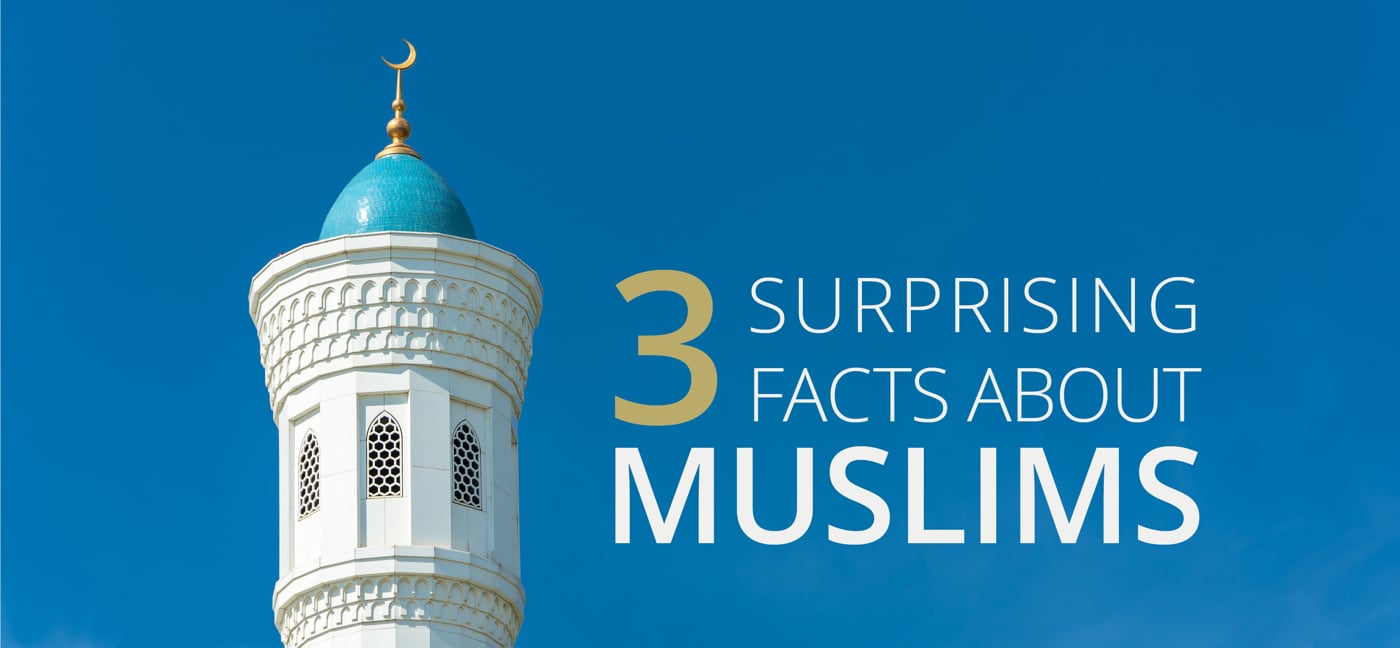3 surprising facts about Muslims

There are almost 2 billion Muslims in the world and anywhere from 3 to 7 million in the United States, yet most Americans know almost nothing about their Muslim neighbors or the religion of Islam. I’m sure there are a lot of things you could learn about Islam or Muslims that would surprise—even delight—you. Here are a few to get the list started:
1. The Qur’an and the Bible share many of the same stories. Many non-Muslims are intrigued when they learn my six-year-old son, Eesa, is named after Jesus—“Eesa” is the Arabic translation for “Jesus.” His middle name is Jibreel – Arabic for ‘Gabriel’. And my younger son is named Mikael Suleman – yes, you guessed it: Michael Solomon. (On that note, did you know that “Allah” is simply Arabic for “The God”? We add “the” (which in Arabic is “Al” – Al-Lah) because our theology is fiercely monotheist. There is only One God—The God. Christian Arabs called God “Allah,” too!).
The names are important because they point to the same revered figures. Jesus and Solomon are prophets in Islam, and Gabriel and Michael are archangels. Of all the archangels, only Jibreel and Mikael are mentioned in the Qur’an, which makes clear their centrality to Islam: “Whoever is an enemy to God, and His angels and His messengers, and Jibreel and Mikael! Then, God (Himself) is an enemy to the disbelievers.” (2:98). There are, of course, some differences—the most obvious being the Christian belief in the divinity of Christ, whereas for Muslims Jesus is a prophet. But the similarities far outweigh the differences.
What is most important about sharing these stories is that they inform our religious principles and behavior. To share the stories means to share some very fundamental aspects of faith and faithful action.
2. Every year, Muslims are required to give away 2.5% of their assets in charity. This charity requirement is called zakat and it’s one of the five pillars of Islam, that is, one of the five most fundamental obligations a Muslim has to fulfill. Islamic scholars have determined eight categories of recipients eligible to receive zakat funds, including those who cannot meet their basic needs; those who do not have a means of livelihood (for instance, if someone lost their job); and those encumbered with overwhelming debt.
Besides the obligatory charity, there is also a major emphasis in Islam on voluntary charity—we’re advised to give as much as we can, and to not be showy or pompous in our giving (the Prophet Muhammad said something you may find in the Bible, too: charity should be given in secret, such that not even “your left hand should know what your right hand” gives). The Qur’an describes charitable giving as lending God a loan, which God promises in the Qur’an to multiply for us in the many blessings we know only come from Him. “Who is he that will lend to God a goodly loan so that He may multiply it to him many times? And it is God that decreases or increases (your provisions), and unto Him you shall return.” (2:245)
3. Muslims fast—and feeding others is a huge part of our faith. Another fundamental pillar of Islam is the required Ramadan fast. During the month of Ramadan, which is a month on the Islamic lunar calendar, Muslims around the world fast from dawn till dusk. During the summer, that means a Muslim may end up fasting 16 or more hours! This is particularly arduous since the fast requires that we abstain from food and drink. Yes, that includes water, too. The fast helps us detach ourselves from our bodily needs and turn inwards to contemplate the state of our soul.
But what’s really special about Ramadan is not the food we don’t eat—it’s all the food we are encouraged to give others. The month is enlivened by a level of socializing you don’t otherwise see. Muslims are eager to host dinner parties or sponsor the fast-breaking meal at the local mosque because God awards us abundantly for feeding a fasting person. So you may likely break bread with a whole group of other Muslims every single night of the month! And beyond the dinner parties are the ample opportunities to feed the poor, both at your local soup kitchens and by sending money abroad to third-world countries where hunger is unfortunately an epidemic.
There are so many aspects of my faith that help me rejoice in humanity. The generosity that flows so freely from my co-religionists all year, then is amped-up during Ramadan, shows me the goodness God cultivates in His followers. I hope you’ll take a moment to talk to your Muslim neighbors about some of the fundamental pillars of Islam, and share some of your practices, too.
Asma Uddin is the founder and editor-in-chief of altmuslimah.com. She is also a lawyer and scholar specializing in American and international religious liberty.
![]()



